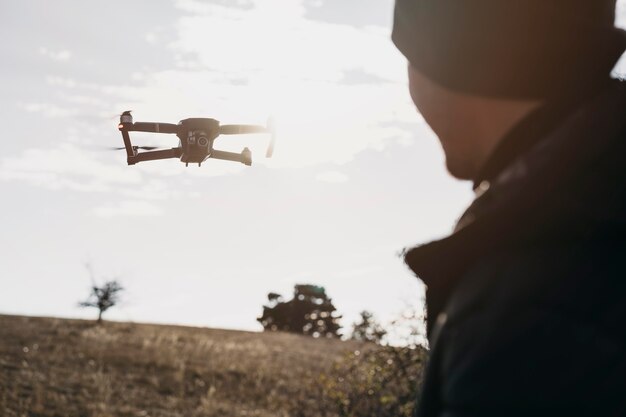
Sponsored article
The advent of autonomous drones is reshaping modern defense strategies, offering new capabilities and transforming military tactics. These advanced UAVs provide enhanced surveillance, precision, and flexibility, allowing for more effective operations. With AI-driven technology and real-time data processing, autonomous drones are set to revolutionize how defense forces operate, offering unprecedented advantages while navigating complex ethical and technical challenges.
The integration of autonomous drones into military operations marks a significant evolution in defense strategy, enabling forces to conduct missions with remarkable precision and efficiency. These sophisticated devices transform battlefield awareness by capturing real-time data through high-definition cameras and sensors, providing military commanders with enhanced situational awareness. As a result, decision-making is faster and more informed, allowing for improved strategic options on the ground. Autonomous drones also play a crucial role in supporting ground forces. By offering reconnaissance capabilities, they can scout hostile territories, identify threats, and mitigate risks before soldiers advance, thus reducing the likelihood of casualties.
Moreover, the efficiency of defense integration is greatly amplified by the use of drones in various applications. These include target identification, surveillance, and even direct engagement scenarios. A notable example is the kamikaze drone, designed for precise neutralization of enemy threats while minimizing collateral damage. Equipped with advanced AI, drones autonomously identify and engage targets, optimizing rapid-response measures in dynamic environments. These capabilities ensure that modern military operations are not only more agile but also more effective in neutralizing potential threats swiftly and with minimal human involvement. As technology evolves, autonomous drones continue to reshape defense paradigms, proving indispensable in contemporary warfare.
Drones equipped with cutting-edge sensors and artificial intelligence are revolutionizing battlefield surveillance and reconnaissance in profound ways. Through real-time data collection, these autonomous unmanned aerial vehicles (UAVs) provide military forces with unprecedented access to critical information, enhancing decision-making processes. The incorporation of AI in drone surveillance allows for rapid data analysis, identifying threats, and monitoring vast and difficult terrains with precision and efficacy. This transformation in reconnaissance streamlines military intelligence operations, enabling forces to adapt swiftly to real-time battlefield conditions. As a result, the agility of military responses is significantly bolstered, providing a decisive edge in rapidly changing conflict scenarios.
Moreover, the ability of drones to operate around-the-clock without the need for frequent human intervention maximizes the efficiency and scope of intelligence gathering missions. Continuous surveillance capabilities reduce the element of surprise by adversaries, as drone-mediated reconnaissance can track troop movements, logistical support channels, and potential threats more accurately and comprehensively than ever before. The real-time feedback loop between drone surveillance assets and command centers facilitates a proactive approach to security operations, culminating in more informed and strategic military decisions. This modern advancement not only enhances the effectiveness of military intelligence but also reshapes modern defense strategies by integrating seamless, autonomous technologies into routine operations.
The deployment of autonomous drones in military contexts introduces a spectrum of challenges and ethical issues that necessitate careful consideration. One prominent concern is autonomous decision-making, where the capability of drones to make life-and-death decisions without human intervention raises moral dilemmas. The prospect of machines operating independently in combat scenarios poses ethical issues related to accountability and the potential for unintended consequences, such as civilian casualties. As military challenges evolve, these ethical dilemmas become more pronounced, emphasizing the need for a framework that governs the deployment and operation of such advanced technologies.
Addressing these military challenges requires comprehensive regulations to ensure that autonomous drones are used responsibly and ethically. Potential risks include the loss of human oversight and the possibility of hacking or malfunctioning, which could lead to catastrophic outcomes. Therefore, establishing international standards and agreements is crucial to mitigate these risks and address the ethical issues surrounding their deployment. A balanced approach that incorporates rigorous testing, transparency, and ethical considerations will be essential in transforming autonomous drones into a reliable component of modern defense strategies.